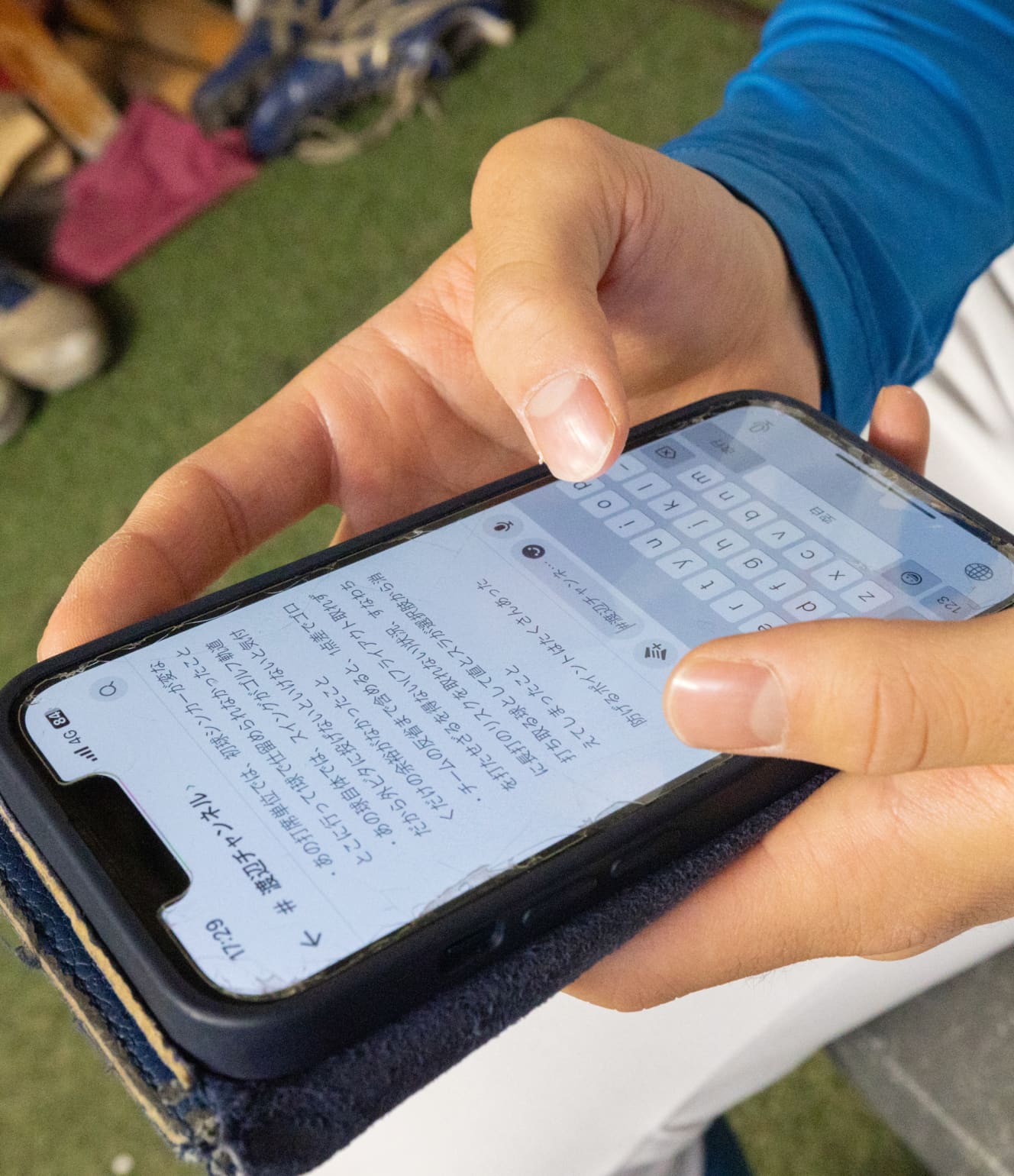Son of Former Lotte Pitcher Watanabe Talks Physics and Pitching After Tokyo University Admission
Mukiteru Watanabe, third-year student at the Faculty of Agriculture, is struggling in the Tokyo Six University Baseball League this fall.

The Submarine Ace of the University of Tokyo
It was a crushing blow.
On October 26, in a Tokyo Big Six University League game between Rikkyo University and the University of Tokyo, Koji Watanabe (a third-year student in the Faculty of Agriculture) was pitching with a 2-1 lead and two outs in the 9th inning. But, with one runner on base, he allowed a walk-off home run. Watanabe used this failure as motivation, writing down his reflections on his smartphone after the game.
“In other words, the fastball and slider were eliminated as options for the pitch to get the batter out.” (original text).
Watanabe has this habit of reflecting on his performances.
“I make it a habit to write long memos on my smartphone about what I noticed or what I need to improve on. Since I’m small (167 cm, 61 kg), I have to think about every play to keep up with strong hitters from other universities, many of whom have experience at Koshien.”
This fall, Watanabe has been performing well in the league, including a complete-game victory against Hosei University, where he allowed only two runs on 151 pitches. Watanabe is the son of former Chiba Lotte Marines pitcher Shunsuke Watanabe, who was known as “Mr. Submarine.” Just like his father, Watanabe pitches sidearm and is expected to be the next ace for the University of Tokyo. Let’s take a look at his intellectual approach to pitching in his own words.
Watanabe’s alma mater is Kaijo High School, a prestigious school in Shinjuku, Tokyo, that produces about 50 University of Tokyo graduates annually. However, Watanabe initially wasn’t at the level needed to pass the entrance exam.
“I was also part of the baseball team at Kaijo, but after our summer tournament in my third year, I took a mock exam for the University of Tokyo and got an E score. That was a wake-up call, so I put my smartphone away, stopped watching TV, and switched to study mode. I went back to basics, reviewing everything from the first year of high school, and by October, three months later, I had improved to a B score.”
“I hated receiving unfounded criticism like ‘it’s just because of your parents’ connections.'”
Watanabe had a strong commitment to entering the University of Tokyo.
“There are two reasons. One is that I wanted to play baseball at a high level in the Tokyo Big Six universities. The second is that I didn’t want to receive baseless criticism like ‘it’s just because of your parents’ connections’ if I went to a private university.”
Watanabe, who was good at science subjects, passed the University of Tokyo’s Science II course and entered the Faculty of Agriculture. His approach to baseball is also highly logical, in line with his scientific background.
“Until high school, I was an orthodox overhand pitcher. I studied the position of the center of gravity and the way of rotation from a physics perspective, and my pitching speed increased to 138 km/h, but considering my small body size, that was the limit. It wasn’t enough to hold off the strong batters in the Tokyo Big Six. So, I decided to switch to an underhand throw. There was a time when I injured my shoulder, and I threw underhand for a short period before.”
He also gave careful consideration to his underhand throwing style. One of the conclusions he reached was not to increase the gear.
“With an underhand throw, you can’t throw a blazing fastball, so there’s no need to aim for strikeouts. The goal is to make the batter miss their timing and get them to hit ground balls. If you try to forcefully increase the speed to get outs, it will throw off your lower body balance and deplete your stamina. The reason I gave up the walk-off home run in the Rikkyo University game was that I lost my composure in a pinch and tried to increase the gear.”
Another thing Watanabe keeps in mind is the pitch tunnel.
“Throwing multiple pitches through the same point (tunnel). If you throw a slow curveball at 100 km/h, and then throw a fastball at 125 km/h that goes through the same spot, the batter will perceive it as faster and get jammed. At the same time, you need to practice a lot to engrain this in your body. Last year, from summer to winter, I threw about 600 pitches a week.”
Does Watanabe ever seek advice from his father, who is also an underhand pitcher?
“I didn’t used to it. The advice from my father, who achieved results in the professional league, would be the answer. There’s no room for argument, so I had no choice but to follow it. I enjoy thinking for myself. But now that I’m a responsible third-year student, I’ve started to reference my father’s advice, like how to get batters’ timing.”
As for the future, Watanabe says it’s still undecided.
“Of course, I admire professional baseball, but I understand that I don’t have the ability for that yet. I want to become a pitcher who is expected for the future and receives offers from the pros.”
With his thoroughly thought-out pitching, Watanabe aims for the University of Tokyo’s first victory point in eight years next spring.



 Unpublished cut: The son of former Lotte pitcher Shunsuke Watanabe talks about “Physics and Pitching.”
Unpublished cut: The son of former Lotte pitcher Shunsuke Watanabe talks about “Physics and Pitching.”PHOTO: Kazuhiko Nakamura